It is often known that Epsom salt, made of magnesium sulfate, brings several benefits to gardening, especially in nurturing healthy plants. The text aims to examine some of the upsides related to using Epsom salt, specifically in growing zucchini, which are famous for their fast rates of development and productivity. By understanding how magnesium supports a plant’s health and researching practical ways of applying this knowledge, one can enhance the growth of zucchini. This book will give you essential tips on improving your zucchini harvest by employing Epsom salt efficiently, whether you are an experienced horticulturist or a beginner farmer.
What Are the Benefits of Using Epsom Salt on Zucchini Plants?
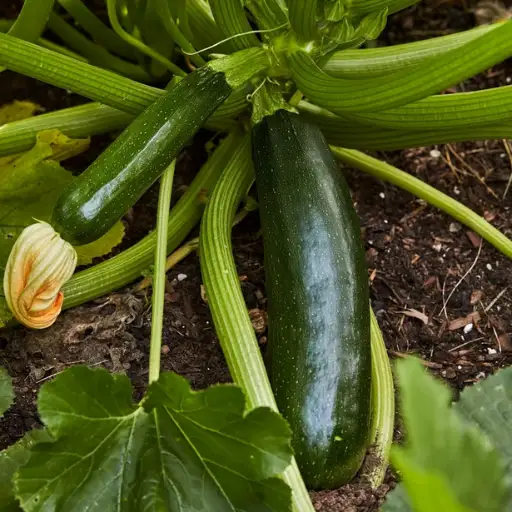
How Does Epsom Salt Improve Zucchini Growth?
Epsom salt improves zucchini growth mainly by giving the plant more magnesium, an essential nutrient for producing chlorophyll that aids in photosynthesis. This enables zucchini plants to convert sun rays into energy more efficiently and results in faster-growing, larger crops. In addition, magnesium increases the uptake of other vital minerals such as nitrogen and phosphorus. Epsom salt can also help reduce blossom-end rot, which occurs most commonly in zucchinis due to a lack of calcium; thus, it ensures healthier fruits and greater yields.
What Nutrients Does Epsom Salt Provide to Zucchini Plants?
Epsom salt provides two major nutrients essential for zucchinis: magnesium and sulfur.
1. Magnesium (Mg):
- Role: This element is indispensable for chlorophyll formation. It helps plants convert sunlight into energy through photosynthesis. Apart from numerous other functions connected with enzyme operation, it also facilitates protein synthesis and nucleic acid production.
- Justification: Zinc works synergistically with magnesium, while calcium boosts overall nutrient uptake and plant health. Symptoms of a magnesium deficiency include yellowing leaves or stunted fruit development.
2. Sulfur (S):
- Role: Sulfur is crucial for protein synthesis and is a component of some amino acids and vitamins. Additionally, it promotes disease resistance and vigor in plants in general.
- Justification: Early stages of plant development necessitate higher levels of sulfur than usual as they involve nutrient absorption at optimal rates.
Including these nutrients through the use of Epsom salts will help improve your zucchinis, among others, making them healthier and more productive.
Is Epsom Salt Suitable for Other Plants Like Tomato Plants?
Yes, one can use Epsom salts on tomato plants, too, just like on squash plants, since they also use the magnesium compound in this product, which helps their growth and increases productivity. I have noticed that epsom salt use can lead to fruit development and generally improved plant health. Thus, like for zucchinis, Epsom salt also helps to decrease blossom-end rot. However, care must be taken to add only small amounts since high quantities could lead to imbalances in soil nutrient content. Generally, incorporating Epsom salt into my tomato care regimen can be a helpful addition.
How to Apply Epsom Salt to Zucchini Plants?
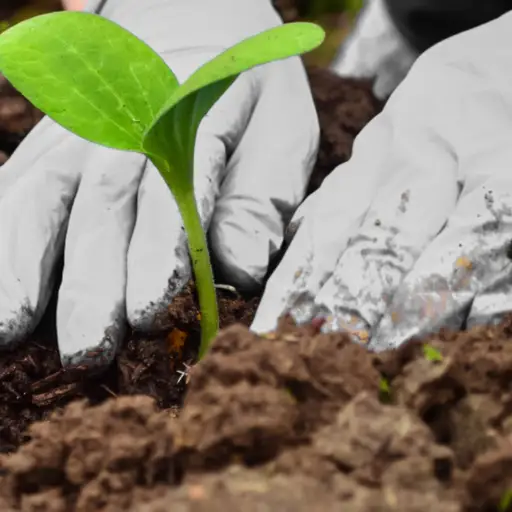
What is the standard Epsom salt dose for Zucchini?
I usually use around one tablespoon for each foot of plant height when applying Epsom salts to my zucchinis. I mix it with water, ensuring that the salt gets fully dissolved, and then I use it at the base of the plants. Additionally, I love to add Epsom salt every 4-6 weeks during the growing season, especially when yellowing leaves indicate magnesium deficiency. This method has always helped me grow healthier and have more robust fruits in my zucchini.
When does one apply Epsom Salt?
I find that using Epsom salt is best done early in the plants’ development, especially when their leaves and fruit are actively developing. It also gives the plants a good start concerning nutrient uptake through planting it in time. Moreover, after heavy rain or irrigation, water can leach nutrients from the soil; thus, I make sure to add Epsom salts afterward. Also, during various critical phases, such as these crops’ flowering and fruiting seasons, I must remember to put some more magnesium and sulfur, enabling them to grow better. This approach has never failed me whenever I have tried practicing gardening at home.
Should You Put Epsom Salt in Soil or Spray It?
From my experience, Epsom salts can be applied on both soils and sprayed as foliar, depending on what suits your plant’s needs best. When using it on soil, once mixed with water, I pour it at the base of my plants because this allows for slow absorption through roots. However, using a foliar spray can sometimes be faster and more advantageous than other ways because nutrients are absorbed into the plant parts quickly. Therefore, all you need to do here is dissolve your Epsom salts into water, which you spray directly onto leaf surfaces, ensuring instant magnesium absorption. Eventually, though, I have always sought to combine the two techniques for my plants to receive optimum nutrition within the whole course of their growth.
How to Identify Magnesium Deficiency in Zucchini Plants?
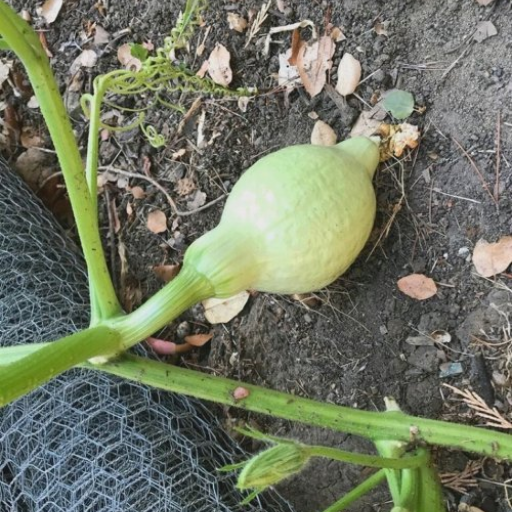
What are the Symptoms of a Lack of Magnesium?
In my gardening experience, spotting magnesium deficiency in zucchinis is essential to knowing how to act. The common symptoms I observe include leaves turning yellow between their nerves, commonly known as interveinal chlorosis. Leaves can also become wrinkled or distorted; sometimes, old leaves may die early to save resources. A crucial technical parameter worth noting is that the soil should contain approximately 50-100 ppm (parts per million) of magnesium for optimal plant health. When I detect my soil tests showing levels below this range and visible signs, I know it’s time I used epsom salt or corrected the soil respectively. Quickly recognizing these signals has assisted me with maintaining vigorous plants that bear fruit through the growing season.
How Can You Conduct a Soil Test for Magnesium Levels?
I go around sampling different parts of my garden, picking up samples from various portions, and testing for magnesium content in my garden soil. To do this, I dig about 4-6 inches deep and collect small amounts from different places, excluding mulched regions where organic matter accumulates after mixing these samples thoroughly until they are dry enough before packaging them for analysis at a laboratory elsewhere in town or using a testing kit bought from one of the garden centers, which gives out accurate results when compared with other methods available in the market. These analyses provide data not only on levels of Mg but also on pH measurements obtained and other nutrients found within it. I will receive detailed results and thus decide whether my zucchini plant requires amendments like Epsom salt, ultimately leading to its prosperity.
What is Epsom Salt’s Role in Deficiency Correction?
Epsom salt named magnesium sulphate chemically plays an important part in correcting any lack of the mineral in plants particularly Zucchinis among others crops grown by farmers.. For both foliar sprays and soil application, Epsom salt constitutes an instant supply of magnesium required for photosynthesis, nutrient transportation, and general growth of the plant. Here are some important details about Epsom salt’s role and its technical parameters according to different sources:
- Enhancing Nutrient Uptake: Magnesium makes plants more efficient at absorbing nutrients like nitrogen and phosphorous. The optimum soil magnesium levels, ranging from 50-100 ppm, enhance nutrient absorption, resulting in improved plant health.
- Improving Plant Health: Treating magnesium deficiency with epsom salt can help reduce symptoms such as interveinal chlorosis or leaf distortion. Researchers have found that a concentration of 1-2 tablespoons of Epsom salts per gallon of water significantly rejuvenates the health status of plants suffering low amounts of Mg.
- Soil pH Interactions: Another thing is that Mg may affect soil pH levels, which influence the availability of nutrients. Maintaining a slightly acidic to neutral pH (between 6.0 and 7.0) helps improve nutrient uptake while enriching the magnesium level in the soil using epsom salt also balances this parameter.
Incorporating epsom salts effectively solves deficiencies and causes strong growth so that zucchinis prosper during their growing season.
Can Epsom Salt Help Prevent Pest Issues in Zucchini Plants?
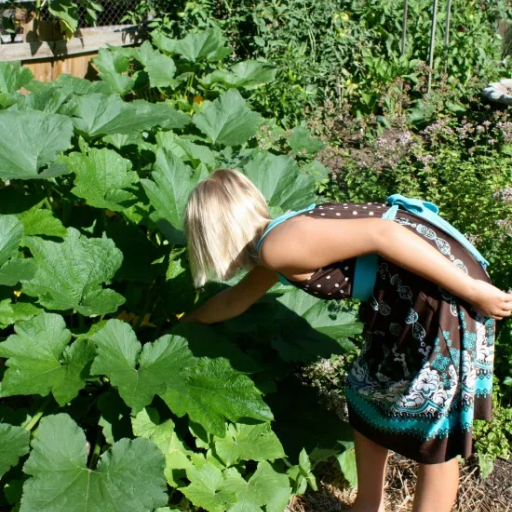
How Does Epsom Salt Act as a Pest Deterrent?
According to my personal experience, zucchini plants can be protected from pests by Epsom salt because it is rich in magnesium, which is needed for the development of many beneficial insects. Besides, when dissolved into water and sprayed on leaves, it creates a slight roughness on the leaf surface, making it less appealing for some pests like slugs and aphids. Equally important, such salts can disrupt pests’ life cycles by creating an atmosphere that does not promote survival. Generally, I have seen reduced pest activity combined with better plant health upon integrating Epsom salts into my gardening routine.
What Are Common Pests That Affect Zucchini Plants?
From what I have observed and gathered from reputable gardening sites, several common pests heavily impact zucchini plants. Some of the most common include:
1. Aphids:
- Parameter: Aphids are small green or black insects that usually gather at the bottom side of leaves. Their presence may decrease plant vigour due to sap feeding and possible transmission of viral diseases.
- Reason: They can multiply quickly, leading to heavy infestations that would weaken the plant if left unchecked.
2. Squash Bugs:
- Parameter: Squash bugs appear dark brown or black ad inflict substantial damage on leaves and stems through sap sucking resulting in wilting.
- Reason: Eggs are laid at the undersides of leaves; early recognition and removal can help reduce their numbers.
3. Cucumber Beetles:
- Parameter: These beetles have stripes or spots running across their bodies. They feed on foliage and fruit, thereby causing bacterial wilt disease.
- Reason: Not only do they destroy crops directly, but they also create pathogen entry points during the feeding process.
Preventative measures such as using Epsom salt and promoting beneficial insects can significantly reduce these pests while increasing overall plant health.
What Are Alternative Natural Fertilizers for Zucchini Plants?
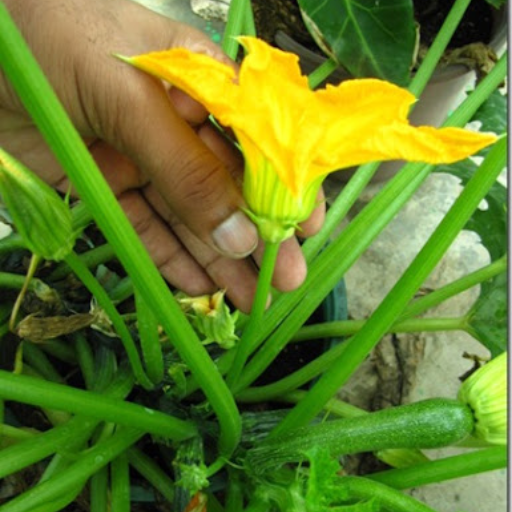
Using Eggshells as a Remedy for Blossom End Rot
Among the many challenges zucchini plants face is blossom end rot, whose prevention is ameliorated by crushed eggshells. To form healthy fruits and avoid this condition, using crushed shells of eggs rich in calcium will be appropriate. I only rinse and dry my used eggshells, then break them into tiny pieces as my way of using them. I mix these crushed shells into the soil around my zucchini plants before planting or sprinkle them around the base as a side dressing during the growing season. This enhances soil fertility through calcium addition and improves its structure to enhance water retention capacity and nutrient uptake. Since I began employing eggshells in my gardening schedule, blossom end rot has decreased significantly, and zucchinis are healthier.
Combining Epsom Salt with Other Fertilizers
It’s been quite beneficial for me to promote plant growth when I combine Epsom salt with various other natural fertilizers, such as composting. A good example is mixing Epsom salt with compost, which provides an all-rounded nutrient composition that encourages microbial action on Earth. Another option would involve blending fish emulsion and Epsom salt to provide more nitrogen alongside trace minerals necessary for plants like zucchinis. Apart from that, there was another instance where I tried Epsom salt alongside bone meal mix adding phosphorus to it meant for strong flower development and root establishment. Consequently, including these blends in my gardening routine has led to more vigorous, healthier plants.
Reference sources
Frequently Asked Questions (FAQs)
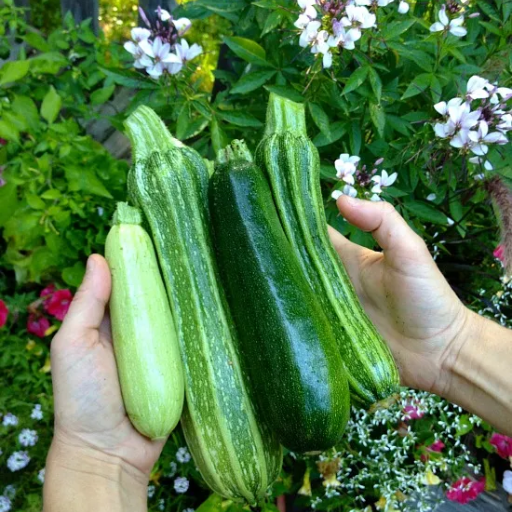
Q: What are the benefits of using Epsom salt for zucchini plants?
A: Epsom salt is a good source of magnesium and sulfur, which plants need to thrive. Magnesium helps strengthen cell walls and improve photosynthesis, while sulfur produces vital amino acids.
Q: How much Epsom salt should I use for zucchini plants?
A: Use one tablespoon of Epsom salt per gallon of water. Apply this solution to the soil around your plants every month during the growing season.
Q: Can Epsom salt help prevent blossom end rot in tomatoes?
A: While Epsom salt can help improve magnesium levels in soil, blossom end rot is typically caused by a calcium deficiency. Using eggshells to prevent this condition may be more effective. However, ensuring your soil is not deficient in magnesium can still benefit your plants’ overall health.
Q: Can I use Epsom salt on other plants like peppers and tomatoes?
A: Yes, Epsom salt can also benefit peppers and tomatoes. Magnesium and sulfur are also essential for these plants, and the application rate is generally the same: 1 tablespoon of Epsom salt per gallon of water.
Q: Is Epsom salt safe to use in my home garden?
A: Yes, Epsom salt is safe to use in your home garden. It is a naturally occurring mineral that can benefit various plants when used in appropriate amounts.
Q: How should I apply Epsom salt to my zucchini plants?
A: Dissolve one tablespoon of Epsom salt in a gallon of water and water the soil around your zucchini plants. If you are growing your plants in containers, ensure there are holes in the bottom of your pots for proper drainage.
Q: Can Epsom salt help with seedling growth?
A: Yes, Epsom salt can be beneficial for seedlings. A light application can provide the magnesium and sulfur that young plants need for healthy growth. Use a diluted solution and apply sparingly to avoid over-fertilization.
Q: Can I combine Epsom salt with neem oil for pest control?
A: You can use Epsom salt and neem oil together, but they serve different purposes. Epsom salt provides essential nutrients, while neem oil is effective for pest control. Using both can contribute to healthier plants.
Q: What are some signs that my soil is deficient in magnesium?
A: Signs of magnesium deficiency in plants include yellowing leaves, poor fruit development, and weak stems. If you notice these symptoms, applying Epsom salt can help replenish the magnesium levels in your soil.
Q: Can overuse of Epsom salt harm my plants?
A: Yes, overuse of Epsom salt can lead to an excess of magnesium, which can interfere with the uptake of other essential nutrients like calcium and potassium. Always follow recommended guidelines and avoid using more than one tablespoon of Epsom salt per gallon of water unless your soil has been tested and is deficient.







